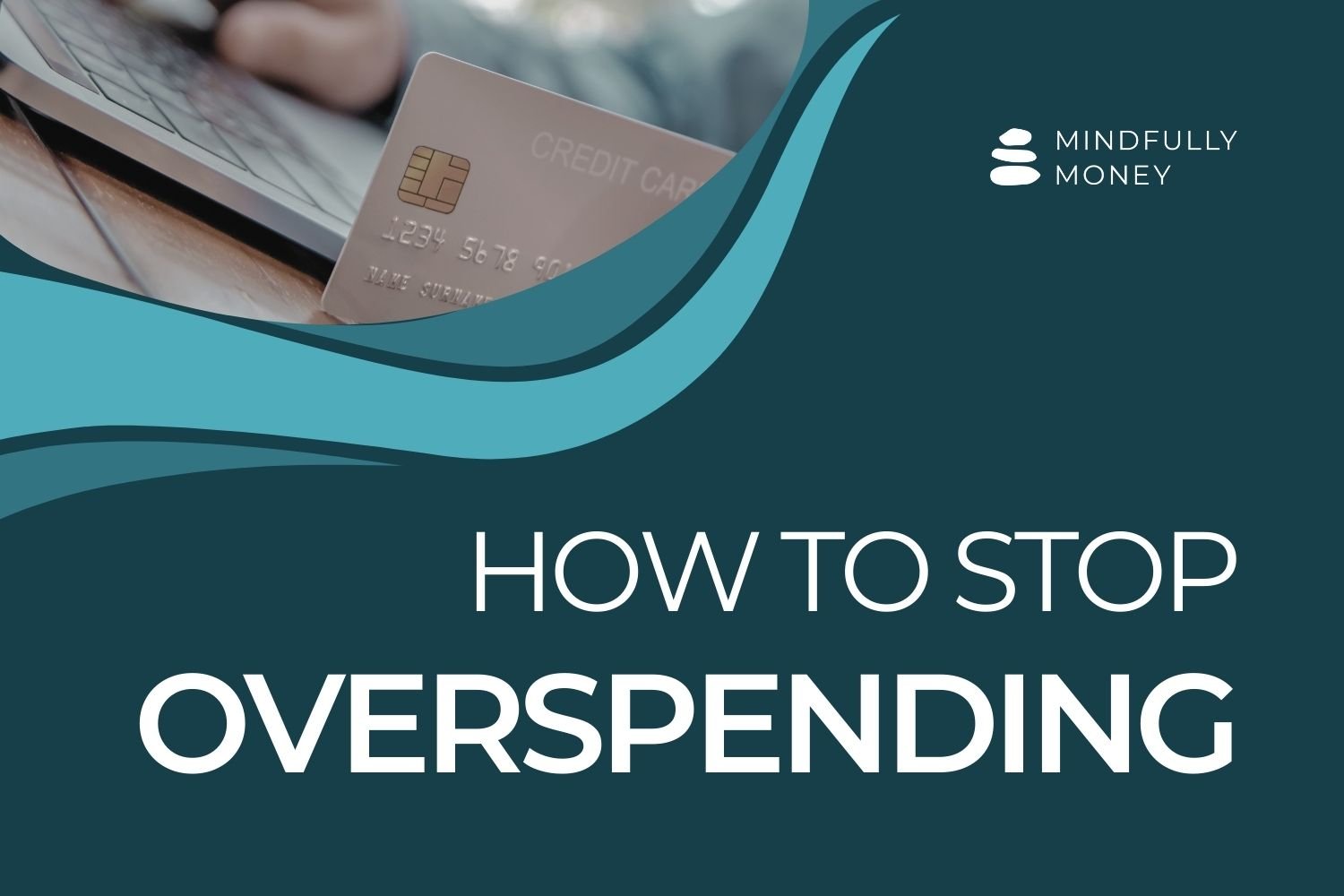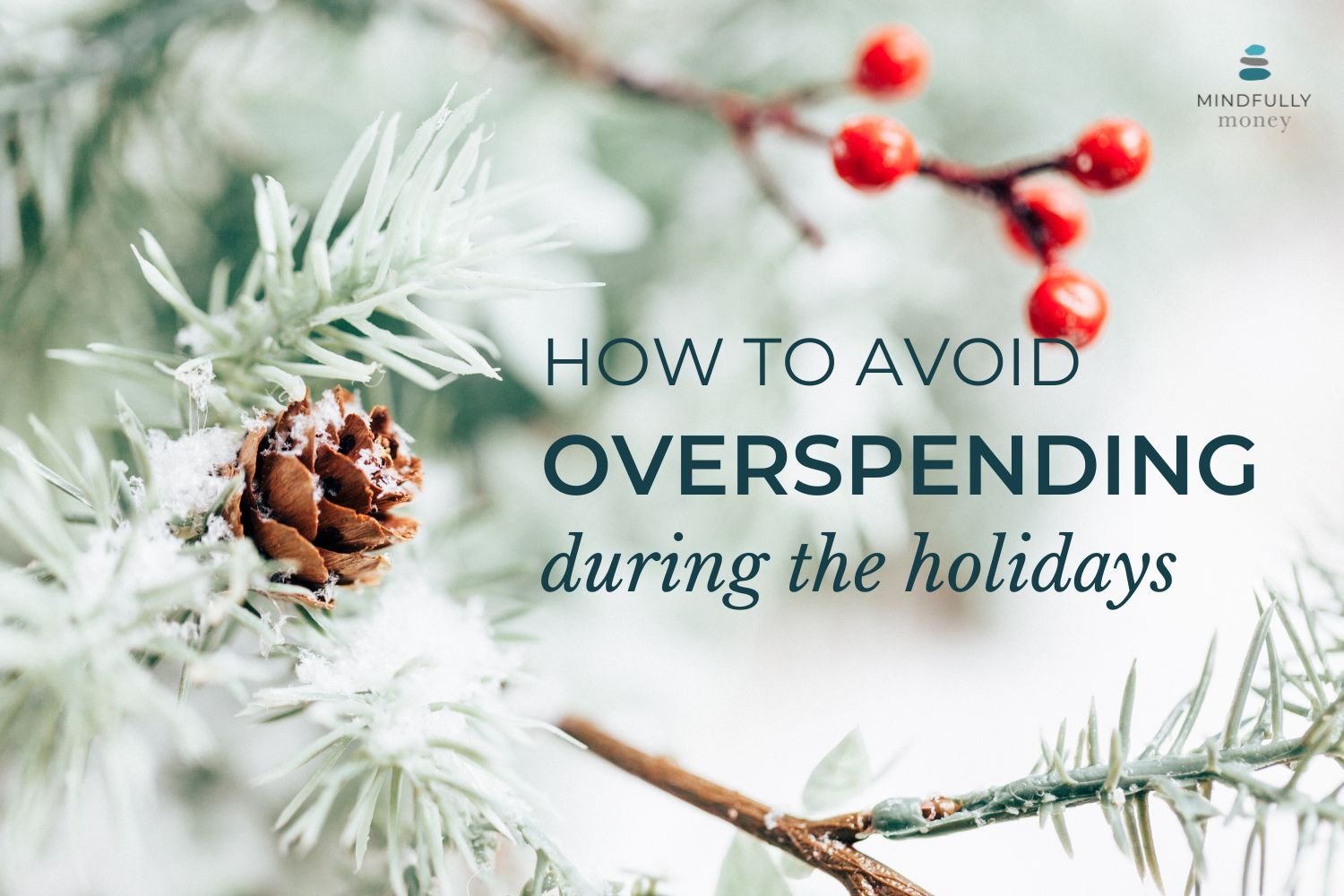Why Your Budget Isn’t Working and What to Do Instead
Have you ever created a budget and given up because it didn’t work? Don’t worry. You’re not alone. I don’t have the exact statistics, but I’m pretty sure something like 180% of budgets fail. Okay, maybe not that many, but it’s a lot!
So why do budgets fail?
It’s usually because you were either thinking about it the wrong way or you didn’t set yourself up for success (or both). Budgets don’t inherently get you to stop spending money. When was the last time that you told yourself to stop doing something and it just worked?
(I know for a fact this sort of thing doesn’t work: the last time I valiantly declared that I would stop eating all of the cookies in the house, I lasted about as long as it takes to consume a whole box of Thin Mints.)
The problem is that restrictions are the ultimate fun killer. Nobody likes to feel like they can’t have the things they want. When you go out for drinks with friends, it’s extremely unlikely you’re going to be able to say no to just one more just because you have a budget. You probably rationalize it as “I’ll cut back on something else” or “One more drink isn’t going to make a big difference.”
That’s just never going to work in the long run. To make your budget work, you need to know why it is failing and how you can set yourself up for success.
5 Reasons Your Budget Isn’t Working and What To Do About It
Reason #1: You think the goal of a budget is to have a budget.
A budget is a tool to help you attain a goal (or multiple goals); it is not a goal in itself. The end result should not be having a budget. The point of having a budget is that you’re able to meet your financial goals.
Many of us fail at budgeting because we think that setting limits on spending categories each month is going to somehow improve our financial situation. Money doesn’t work like that. You can’t just throw some numbers on a spreadsheet or hook your accounts up to an app and expect that things are magically going to turn out differently at the end of the month.
Think of a budget as a tool for building awareness and inviting intentionality into your finances. Through the process of budgeting you are observing where your money is going and deciding if that’s really where you want it to go.
Reason #2: You don’t know your WHY.
Remember before when I said that budgets are tools to help us achieve our financial goals? Well, you have to know what your financial goals are in order for that to work. And by “financial goals,” I really mean life goals. Where do you want to be in 5 years? 10? Retirement? What do you really want your life to be like?
Think about what you really envision in your future. Close your eyes and picture yourself in the future. Where do you live? What are you doing? Talk to your partner if you have one and together create a vision for your future. Then start figuring out what kind of financial resources you need to make that happen.
Once you know where you’re headed, you can use your budget to help you get there. You can start saving for a house or home renovation, a vacation, or for the kids to go to college. Maybe your dream is to buy a house on a lake and eventually turn it into your retirement home. Maybe you want to start your own business and need to save money to cover the gap between when you stop working and when your business gets going. Whatever it is, identify it and start making a plan to get there.
Your “why” is what is going to motivate you to stay on your budget. When you’re faced with a choice between going out to eat again or saving for your next vacation, you know what’s at stake. Knowing exactly what you’re giving up is key to being able to stop yourself from spending on things you don’t care about as much.
More Tips: How to Stop Overspending
Reason #3: You set general intentions instead of specific goals.
Many people create a budget with the intention of spending less or saving more or some other generic goal. Unfortunately, these are far too general to have any meaning. What does it mean to spend less or save more? How will you know if you succeeded?
The problem with intending to spend less money is that you go to the store and you have no idea how to do it. You might start analyzing every single item, comparing prices, trying to find coupons, evaluating if you really need each thing. Then you get overwhelmed and give up.
Instead, narrow in on what you really want by identifying the reason behind the intention. So you want to save more money? What do you want to save it for? Retirement? College fund? Emergency fund? Vacation?
Then make it more specific and start developing a plan to get there. Write down how much you want to save or the amount by which you want to reduce spending. Look for easy ways to make it happen. Focus on one thing that will have a big impact, such as cancelling a membership you don’t use, asking for a raise, or finding cheaper home/auto insurance.
Make your goals SMART goals: Specific, Measurable, Attainable, Relevant, and Time-bound. Use your budget as a tool to help you identify what goals make sense and then design an achievable plan to get there.
Related article: How to Stop WANTING to Spend Money
Reason #4: You made it too hard and/or you chose a budgeting system that isn’t right for you.
The best budgeting technique is the one you’ll actually follow.
Some people love the idea of recording every single item they buy, but others would give up on that after a few days (or a few hours…). For others, the cash envelope system works really well because they like to know and see exactly how much they have and can spend. But the idea of going to the bank to get cash, allocating it into different envelopes and then making sure you only put a certain amount in your shopping cart is a major headache.
When it comes to budgets, simple is better.
Whether you like cash, spreadsheets, or apps, find a method of tracking your money that works for you and don’t add too many unnecessary steps. Even something as simple as recording how much money came in and went out total over the entire month can be a perfectly acceptable method.
Or, learn how to manage your money without a budget.
Reason #5: You thought you needed new habits when what you really needed was to remove the choice.
Establishing good habits is an admirable goal, but it’s extremely difficult to do. How many times have you tried to cook more at home only to have long and busy days trump your good intentions after a few weeks? Or maybe you’ve wanted to start setting aside more money, but you just never remember to do it?
When it comes to budgeting, we often put too much pressure on ourselves to suddenly adopt a bunch of new habits. The reality is that it’s just too hard to manage on a long-term basis. Even writing down where your money goes becomes onerous after a few days.
The key to overcoming this is making it automatic so that you don’t have to think about it. You’re basically taking yourself out of the equation.
So how can you make it automatic? Luckily, there are a ton of apps and online banking features that will help. For example, you might already be having money automatically deducted from your paycheck and sent to your 401k. You can start doing similar things in other ways. When your paycheck is deposited in your checking account, set it up to automatically send some of that to savings accounts. Set up automatic bill pay. Use an app to review all of your purchases in one place without having to manually record them.
Think creatively about things you can do to remove the burden of making a decision or taking action. The less you have to think about it, the more successful you’ll be in staying on track.
Budgeting for Success
Sometimes budgeting takes a number of tries before you figure out a way that works for you. Don’t give up just because it failed one time. Keep trying different things and making adjustments. And if you really feel lost, consider working with a financial coach who can help you put together a system that works for you.
Was this article helpful? Pin for later or share with your friends!












